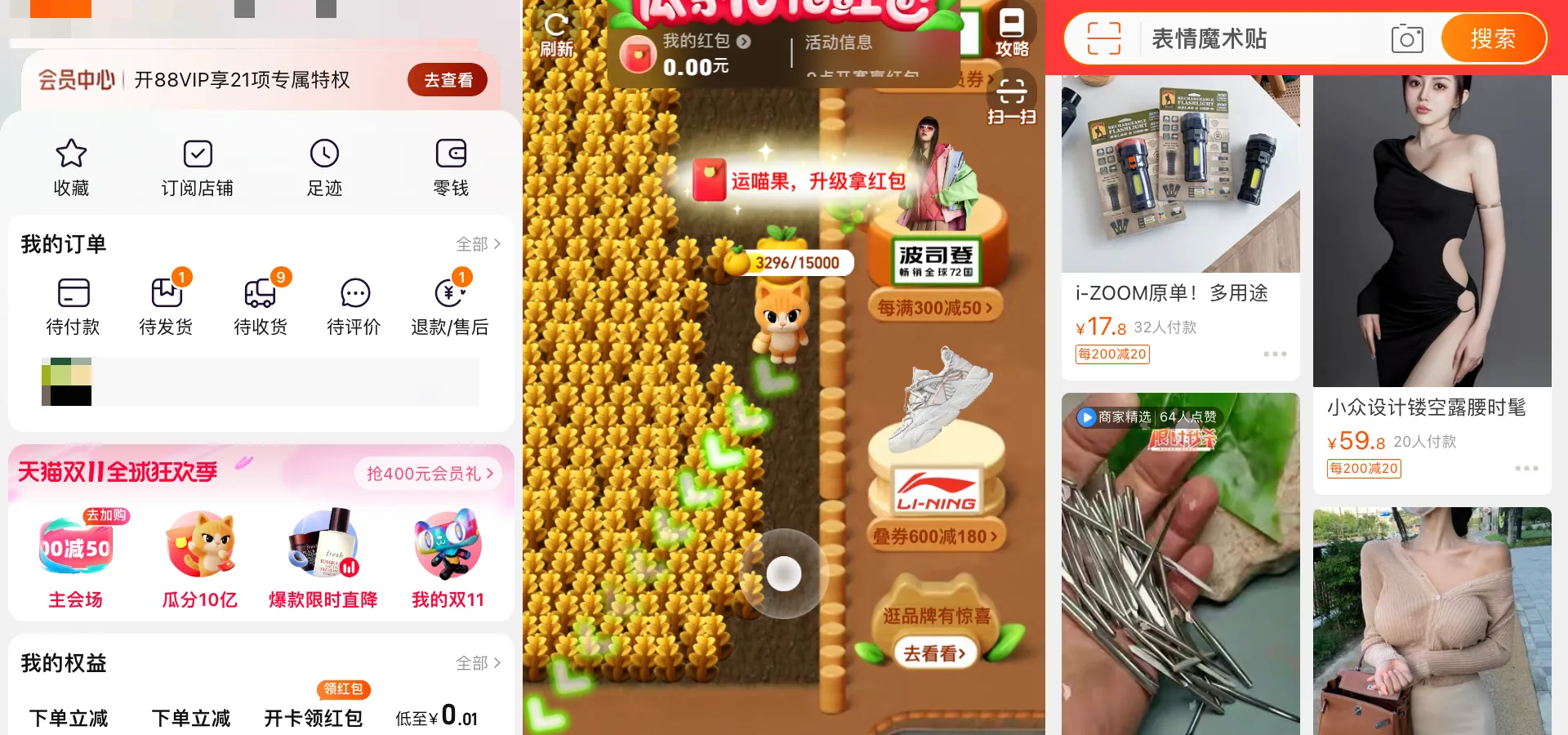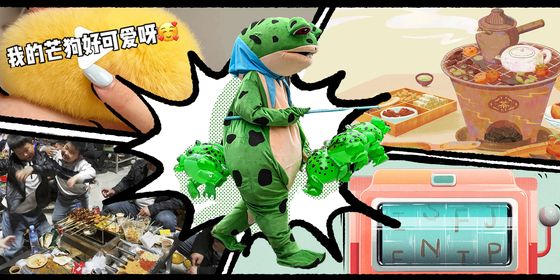How a tabby cat mini-game helped transform China’s e-commerce ecosystem...not always for the better
The machine that has subjugated me and taken control of my mind and body is no violent robot, no misanthropic computer system from the far future; no Matrix, no SkyNet—but a grinning character named SkyCat. From her feline fruit farm she commands millions of minions like myself. “Collect my Meow Fruit,” I hear its voice in my head, “the more you serve me, the more you shall have yourself.” I can’t resist.
SkyCat (tianmao in Chinese) is a mini-game inside the Alibaba-owned e-commerce platform Taobao, but it’s much more than that. I’m barely awake in the morning and it is the first thing on my mind. I pick up the phone and open the app, seeing endless ads for products the algorithmic ad engine selects for me. I navigate to my dashboard, the place where I can track the status of my orders. I come here dozens of times a day, sometimes staring at the dashboard for minutes on end, waiting for orders to change status from “shipped” to “being delivered.” My heart rate increases: a small rush of dopamine.
SkyCat is just one of the ways Taobao, China’s largest online shopping platform, keeps consumers hooked. Taobao is sometimes compared to its online shopping competitors from the West, but Alibaba’s monstrous creation is a step ahead: Taobao integrates online shopping with social media features and entertainment, making it one of the 10 most downloaded iPhone apps in China, even ahead of TikTok, WeChat, and Baidu, with well over 800 million monthly active users according to data from SensorTower and Statista. The app works in unison with Xianyu—another app owned by Alibaba to re-sell used items, the money from which is transferred directly to Alibaba’s payment app Alipay, which can be used to pay for new things on Taobao: such is the endless cycle of consumerist hell.













